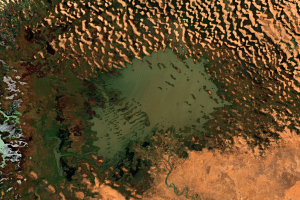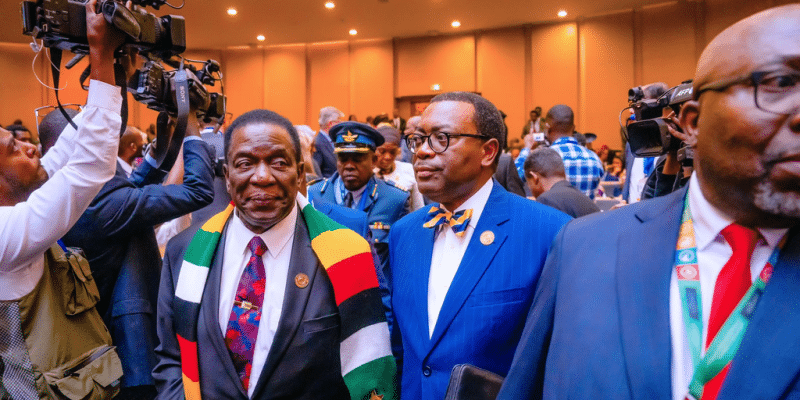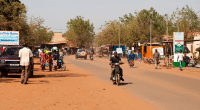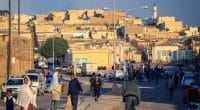Restoration of the Lake Chad Basin was at the heart of discussions at the recently concluded 37th African Union (AU) Summit in Addis Ababa, Ethiopia. The African Development Bank (AfDB) is committed to supporting restoration efforts in the Lake Chad Basin.
The 37th African Union (AU) Summit ended on Sunday February 18, 2024 against a backdrop of multiple crises in Africa. The focus was on security in the Sahel, where terrorist groups are destabilizing mainly Burkina Faso, Mali and Niger. These three countries, which have experienced coups d’état, recently decided to leave the Economic Community of West African States (ECOWAS) in favor of the new Alliance of Sahel States (AES).
Other countries are experiencing internal conflicts, notably Sudan and the Democratic Republic of Congo (DRC). In West Africa, Senegal is in the throes of a political crisis triggered by President Macky Sall’s decision to postpone the date of the presidential elections normally scheduled for February 2024. In an interview on the sidelines of the 37th African Union Summit in Addis Ababa, Azali Assoumani, the outgoing president of the continental organization and also president of the Union of the Comoros, asserted that the Senegalese president “was within his rights”.
Saving Lake Chad
In any case, the Senegalese president’s will was halted by the Constitutional Council, and President Macky Sall promised to organize presidential elections “as soon as possible”. In short, no cause for celebration. The Addis Ababa gathering also discussed Lake Chad, once the sixth largest inland body of water in the world, covering an area of around 25,000 km². The lake began to dry up rapidly in the 1970s.

Lake Chad as seen from space – contains modified Copernic Sentinel data (2019) © Lavizzara/Shutterstock
According to the United Nations (UN), Lake Chad has already lost 90% of its volume due to overexploitation and climate change. This situation is exacerbating conflicts between herders and farmers in the Lake Chad basin. African Development Bank (AfDB) Group President Akinwumi Adesina, who took part in the Addis Ababa meeting, signed a memorandum of understanding with Mamman Nuhu, Executive Secretary of the Lake Chad Basin Commission (LCBC), on the rehabilitation of this freshwater body in central Africa.
Reforestation
Under this agreement, the AfDB will mobilize the investments needed to rehabilitate the lake’s degraded ecosystems. In addition to infrastructure development, the pan-African bank based in Abidjan, Ivory Coast, will invest in strengthening the institutional capacities of the LCBC, whose member countries are Cameroon, Chad, Niger, Algeria, Niger, the Central African Republic (CAR), Libya and Sudan.
The @AfDB_Group and @lcbc_cblt sign MOU to mobilise resources for infrastructure development and strengthen institutional capacity to rehabilitate the #LakeChadBasin. #Tchad #AUSummit pic.twitter.com/FAQX9gjT86
— African Development Bank Group (@AfDB_Group) February 17, 2024
In addition to the AfDB, the United Nations Development Programme (UNDP) is supporting the restoration of the lake, mainly in Chad, through a project focusing on reforestation and community management, helping to restore the vegetation cover of 4,000 hectares of degraded or deteriorating ecological sites. Since 2018, the UNDP has also been working to improve agricultural productivity “by taking into account climate variability through the promotion of resilient local agricultural varieties”, says the organization based in New York in the United States of America.
Such initiatives need to be multiplied, especially as the lake’s shrinkage threatens not only biodiversity, but also the well-being of some 45 million people who depend on it for food, and around 2 million who live along its shores, according to the AfDB.
The controversial Oubangui River water transfer project
In the search for solutions to save Lake Chad, the LCBC has even considered the project to transfer water from the Oubangui River (a tributary of the Congo River) back to the lake. This idea, which originated during the drought years (1970-80), is all the more controversial as it will require an investment of $14 billion. This is equivalent to the gross domestic product (GDP) of an LCBC member country like Chad ($11.78 billion in 2021).
Read also- CAMEROON: A solar-powered drone to fight terrorism and save Lake Chad
Moreover, “this project raises a number of questions. On the one hand, the current drying-up of Lake Chad has not been demonstrated. On the other hand, the transfer project presents many uncertainties as to its environmental impacts – the future of wetlands in the upstream basin, changes in biodiversity, etc. – and social impacts – the future of recession lands and populations living on the current shores in the event of rising water levels, etc. – as well as its economic viability”, explains geographer Géraud Magrin, professor at the University of Paris 1 Panthéon-Sorbonne.
At a standstill, the transfer project was on the menu for discussion at the International Conference on Saving Lake Chad in February 2018 in Abuja, Nigeria. At the time, Kinshasa strongly opposed the transfer of water from the Oubangui River, which flows through the north of the Democratic Republic of Congo (DRC). If it is finally accepted, the transfer of water from the Oubangui River could be achieved through a variety of means, including dams, pumping and the channelling of the Chari River.
Jean Marie Takouleu








You must be logged in to post a comment.